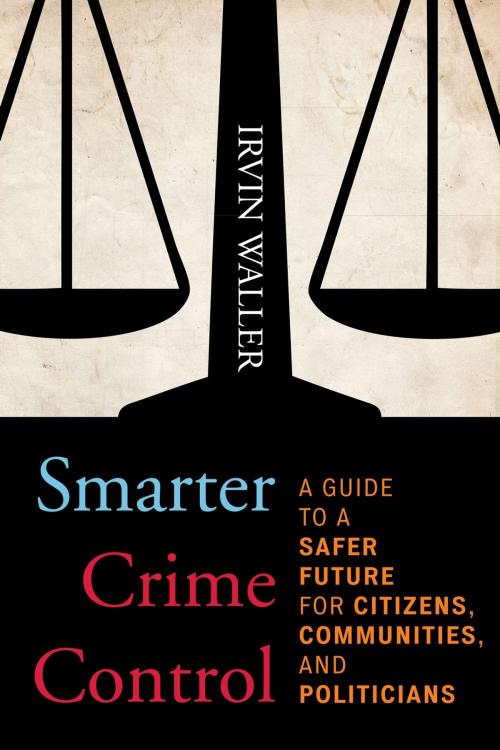Smarter Crime Control
A Guide to a Safer Future for Citizens, Communities, and Politicians
Nonfiction, Social & Cultural Studies, Social Science, Crimes & Criminals, Criminology| Author: | Irvin Waller | ISBN: | 9781442221703 |
| Publisher: | Rowman & Littlefield Publishers | Publication: | December 5, 2013 |
| Imprint: | Rowman & Littlefield Publishers | Language: | English |
| Author: | Irvin Waller |
| ISBN: | 9781442221703 |
| Publisher: | Rowman & Littlefield Publishers |
| Publication: | December 5, 2013 |
| Imprint: | Rowman & Littlefield Publishers |
| Language: | English |
The U.S. is the world´s biggest jailor and one of the most affluent murderous countries, and yet its citizens pay more taxes to sustain law and order than their European counterparts. Yet, the U.S. has the most data in the world on the use of incarceration and its failure. Its researchers have identified more projects able to prevent violence than the rest of the world put together. Its legislators have access to pioneering data banks on cost effective ways to use taxes to reduce crime. We are left wondering why we cannot implement measures that we know will work, reduce crime, and cost less for law and order.
Smarter Crime Control shows how to use recent knowledge and best practices to reduce the extraordinarily high rates of murder, traffic fatalities, drug overdoses, and incarceration, while avoiding the high taxes paid by families for policing and prisons. Providing detailed examples, Irvin Waller offers specific actions our leaders at all levels can take to reduce violence and lower costs to taxpayers. He focuses on how to retool policing and improve corrections to reduce reoffending and crime, while limiting criminal courts. He also shows how programs and investments in various strategies can help those youth on the path to chronic offending avoid the path all together.
Waller shows how to get smart on crime to shift the criminal justice paradigm from the failing, outdated, racially biased, and exorbitant complex today to an effective, modern, fair and lean system for safer communities that spares so many victims from the loss and pain of preventable violence. He makes a compelling case for reinvesting what is currently misspent on reacting to crime into smart ways to prevent crime. Ultimately, he demonstrates to readers the importance of reevaluating our current system and putting into place proven strategies for crime and violence prevention that will keep people out of jail and make our streets and communities safer for everyone.
The U.S. is the world´s biggest jailor and one of the most affluent murderous countries, and yet its citizens pay more taxes to sustain law and order than their European counterparts. Yet, the U.S. has the most data in the world on the use of incarceration and its failure. Its researchers have identified more projects able to prevent violence than the rest of the world put together. Its legislators have access to pioneering data banks on cost effective ways to use taxes to reduce crime. We are left wondering why we cannot implement measures that we know will work, reduce crime, and cost less for law and order.
Smarter Crime Control shows how to use recent knowledge and best practices to reduce the extraordinarily high rates of murder, traffic fatalities, drug overdoses, and incarceration, while avoiding the high taxes paid by families for policing and prisons. Providing detailed examples, Irvin Waller offers specific actions our leaders at all levels can take to reduce violence and lower costs to taxpayers. He focuses on how to retool policing and improve corrections to reduce reoffending and crime, while limiting criminal courts. He also shows how programs and investments in various strategies can help those youth on the path to chronic offending avoid the path all together.
Waller shows how to get smart on crime to shift the criminal justice paradigm from the failing, outdated, racially biased, and exorbitant complex today to an effective, modern, fair and lean system for safer communities that spares so many victims from the loss and pain of preventable violence. He makes a compelling case for reinvesting what is currently misspent on reacting to crime into smart ways to prevent crime. Ultimately, he demonstrates to readers the importance of reevaluating our current system and putting into place proven strategies for crime and violence prevention that will keep people out of jail and make our streets and communities safer for everyone.















